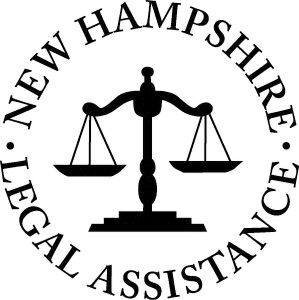People with Disabilities Most Likely to Face Housing Discrimination
For people with a disability, finding housing can be tricky. There may be lack of easy access, issues with safe maneuvering in the home, or direct discrimination from landlords against those with both physical and mental disabilities. According to the NHLA Fair Housing Project, the majority of their cases involve people with disabilities, from landlord’s refusal to rent to not allowing reasonable accommodations or modifications for safe enjoyment of the home.
Discrimination can include, among other things, refusal to rent or sell or refusal to make a reasonable accommodation or modification to the unit.
Despite legal protections, housing discrimination persists
Under state and federal law, it is illegal to discriminatein the renting, selling, or financing of a home based on someone’s:
· Race
· Color
· National origin
· Religion
· Sex
· Familial status
· Disability
· Age
· Sexual orientation
· Marital status
· Gender identity
Discrimination can include, among other things, refusal to rent or sell or refusal to make a reasonable accommodation or modification to the unit.
Lindsay Lincoln, co-director of the NHLA Fair Housing Project, said the highest number of housing discrimination complaints they receive are from people with disabilities. They can vary from refusing to allow assistance animals to not allowing construction of access ramps for someone in a wheelchair.
“While we’ve seen a range of complaints in the past year, discrimination based on disability continues to pose an outsized challenge for folks seeking a safe place to live,” said Lincoln. “The law protects individuals’ right to enjoyment of their home, so refusing a reasonable accommodation or modification that would provide a person with disabilities equal access to housing is not just unfair, it’s illegal.”
Disability discrimination data
A 2020 article in the New Hampshire Union Leadershowed that reports from people with disabilities made up the vast majority of housing discrimination complaints within the City of Manchester. Of the 146 discrimination cases against Manchester landlords, 68 involved people with a mental disability and 45 cases involved people with a physical disability. One example noted is how assistance animals can bump up against no pet policies. With the increased use of assistance animals for mental health treatment, some people with disabilities are having difficulty renting, or are facing challenges from current landlords who do not allow pets within their properties.
With the onset of the COVID-19 pandemic, new issues have come to the NHLA Fair Housing Project’s attention, Lincoln said. For some, a disability can present an underlying health issue that puts them more at risk of complications related to COVID-19. While staying at home, some tenants have been reluctant to allow the landlord or others inside for inspections for fear of contracting the virus. The NHLA Fair Housing Project asserts that delaying the inspection should be allowed in some cases as a reasonable accommodation.
Other kinds of housing discrimination
The majority of cases involve people with disabilities, but these individuals are not the only protected class members facing unfair housing practices in New Hampshire. There has been a recent rise in race and ethnicity related complaints, as well as continued reports of discrimination based on familial status, which is discrimination based on having children in the home or being pregnant.
In these cases, people often need advocates to assess whether the case rises to the level of discrimination and provide representation if discrimination has occurred. NHLA’s Fair Housing Project was formed more than 20 years ago to investigate complaints and help victims of housing discrimination seek the protections and remedies they deserve. The Fair Housing Project also seeks systemic improvements in housing opportunities by providing training throughout the state on fair housing topics and by advocating for changes in laws, ordinances, and policies that have a negative impact on protected class members.
Disclaimer: The work of NHLA’s Fair Housing Project is supported by funding under grants with the U.S. Department of Housing and Urban Development. NHLA is solely responsible for the accuracy of the statements and interpretations contained herein. Such interpretations do not necessarily reflect the views of the Federal Government.

